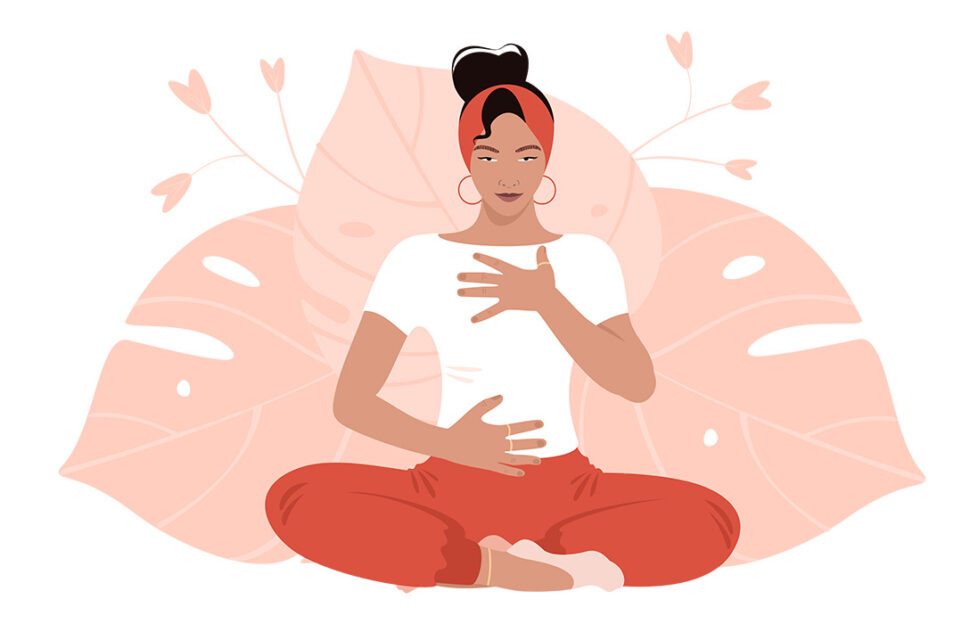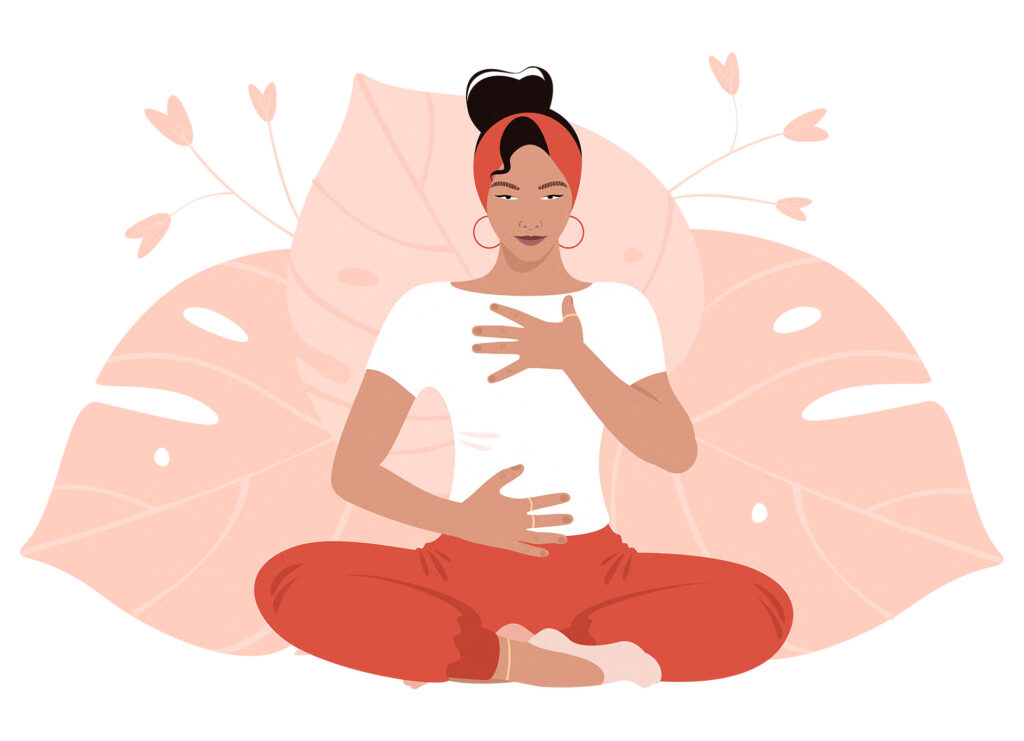Long Covid – How To Recover Well

Covid-19 is now part of everyday life. Most of us have had the virus, in some mutation or other, at least once. And, thankfully, most of us have recovered.
However, the latest figures from the Office of National Statistics reveal that two million people in the UK currently have Long Covid.
Despite having been infected more than four weeks ago, over 2% of us are still struggling with Covid-19 symptoms Figures also show that women between the age of 35 and 69 are at a higher risk of developing Long Covid.
In addition, the ONS statistics found that 34% of Long Covid sufferers developed symptoms after catching Omicron, contradicting the assumption that this variant is less severe than previous strains.
“Anyone thinking that Omicron is less likely to result in Long Covid must think again,” stresses Dr Quinton Fivelman, chief scientific officer at London Medical Laboratory. “These latest ONS figures are a wake-up call.”
New symptoms to add to the list
Common symptoms of Long Covid include
- Brain fog
- Fatigue
- Breathlessness
- Insomnia
However there are many others – and more seem to appear with each new variant. Here are just a few of the latest additions to the Long Covid symptom list:
- Joint and muscle pain
- Depression
- Chest pain
- Heart palpitations
“If you develop any new or persisting symptoms after Covid-19 infection, it’s important to seek medial attention right away,” says Dr Aleem Qureshi, GP and clinical lead at Healthily (livehealthily.com), the world’s first medically-approved self-care website. “This is to rule out any life-threatening conditions and evaluate whether symptoms are due to Long Covid or another condition.”
If you’ve been diagnosed with Long Covid, it’s important to follow the medical advice provided by your GP or consultant – and, if necessary, to tweak your lifestyle slightly.
-
Be active
Taking regular exercise, no matter how gentle or how little, will gradually build up energy levels while also enabling your muscles and joints to regain strength and suppleness. In addition, exercising, especially outdoors, reduces stress and releases natural feel-good hormones. Let the natural environment give you a helping hand.
If you’re totally exhausted after going for a walk, or even after answering the front door, becoming more active can be a daunting prospect. That’s when an energy-boosting, heart-protecting supplement such as Ubiquinol (£34.95, from healthspan.co.uk) might help. Ubiquinol is an important natural substance but it reduces in the body with age and, in some cases, illness.
“People experiencing Long Covid may benefit from taking ubiquinol coenzyme Q10,” said Dr Sarah Brewer, medical director of Healthspan. “According to a small pilot study, symptoms such as fatigue, breathing difficulty, palpitations, headache and muscle and joint pains improved in patients undergoing rehabilitation at a mountain spa.”
-
Talk about it
It’s important to tell your friends, relatives and any medical professionals how you’re feeling, both physically and mentally.
Always talk about your symptoms with your doctor, who may be able to refer you for further tests or to a specialist. And if you need help at home, or with the shopping, or you’d like more (or fewer) visitors, just ask.
-
Breathe…
As your strength returns, Covid-induced breathlessness should reduce. Until then, practise slow, smooth, controlled breathing.
The experts at Healthily recommend placing one hand on your chest and the other on your stomach, closing your eyes and slowly breathing in through your nose and out through your mouth, aiming to move the hand on your tummy more than the hand on your chest.
-
…And relax
Your daily life may have drastically changed since Long Covid came your way, and you may feel that you spend all day relaxing as you’re too tired to attempt anything more energetic.
However, underlying stress is just as likely to increase feelings of anxiety, deplete energy levels, wreck sleeping patterns and trigger depression as the stress caused by the constant buzz of work-related adrenalin.
Devote time every day to releasing all the invisible stress that’s building up – perhaps with gentle yoga, Pilates, meditation or wrapping up and reading a good book in the garden.
-
Exercise your brain
Brain fog is one of the most common Long Covid symptoms, affecting your mind’s ability to remember, concentrate, think or even talk properly. To keep brain fog at bay, write a daily to-do list and exercise your brain with puzzles, games and learning.
Make a point of completing Wordle every day, play Scrabble®, do jigsaws, learn a musical instrument – or finally write that long-awaited first novel.
-
Look after yourself
Covid 19 is tough – and so is Long Covid. Give yourself a break. Try not to be angry if you can’t do something, and reward yourself with a little treat when you manage something you assumed was impossible. Very importantly, be kind when you’re talking to the inner you.
-
Don’t go breaking your heart
If heart palpitations and/or chest pains are amongst your Long Covid symptoms, it’s vital to discuss this as soon as possible with your GP.
To help keep your heart fighting fit, it might be worth considering a heart health supplement such as Ubiquinol Max (£35.95), which contains ubiquinol coenzyme Q10.
“We know from research that ubiquinol helps to prevent the heart from getting weak,” says American cardiologist Dr Decker Weiss. “Also, when the heart is weak, ubiquinol helps it to function better and can even improve the way it pumps blood.”
 Find more up-to-date health tips, friendly advice and uplifting features every Tuesday in My Weekly magazine. It’s your feelgood read.
Find more up-to-date health tips, friendly advice and uplifting features every Tuesday in My Weekly magazine. It’s your feelgood read.
£1.75 from newsagents and supermarkets (£2.45 for a bumper issue) or take out a subscription to save pounds on the shop price.











